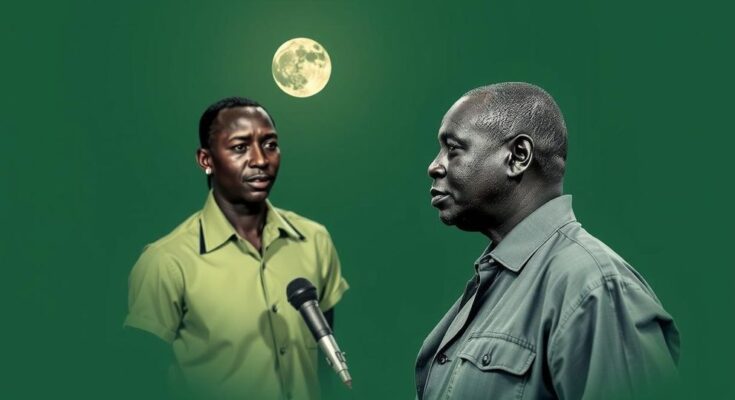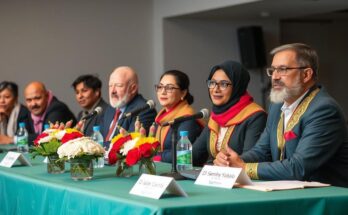Botswana’s governing party, the Botswana Democratic Party, has faced a significant electoral defeat, losing its parliamentary majority for the first time in nearly sixty years, with preliminary results indicating that opposition parties have won 31 out of 61 seats. President Mokgweetsi Masisi’s party has been affected by economic downturns resulting from a global decline in diamond demand, exacerbating unemployment rates which have risen to 27 percent.
In a stunning turn of events, Botswana’s long-standing governing party, the Botswana Democratic Party (BDP), has succumbed to an election defeat after nearly sixty years at the helm. Preliminary results from the electoral commission indicate that President Mokgweetsi Masisi’s party has lost its parliamentary majority, ceding power to opposition parties that collectively secured 31 out of the 61 available seats in parliament. As the early voting tallies unfolded on Friday, the BDP was reported to have gained a mere one seat. Meanwhile, the Umbrella for Democratic Change, led by Duma Boko, an attorney with a Harvard education specializing in human rights, won an impressive 19 seats. The Botswana Congress Party, under the leadership of economist Dumelang Saleshando, captured seven seats, whilst the Botswana Patriotic Front, aligned with former President Ian Khama, obtained five seats. According to the constitutional provisions of Botswana, the party possessing the majority of parliamentary seats is afforded the authority to appoint the president and establish a government. President Masisi, who is 63 years old and has a background as a high school teacher and UNICEF worker, was anticipated to maintain his parliamentary majority and thus serve a second and final term. Botswana has often been lauded as one of Africa’s success stories, characterized by its wealth and democratic stability. However, the economic landscape has been impacted significantly due to a global decline in demand for mined diamonds—comprising over 80 percent of the nation’s exports. The International Monetary Fund projects a slowdown in economic growth to 1 percent in 2024, a decline from 2.3 percent in the previous year and 5.5 percent in 2022. Concurrently, unemployment has surged to 27 percent, underscoring the pressing economic challenges faced by the country.
Botswana, a nation known for its diamond wealth, has enjoyed political stability and economic growth since gaining independence in 1966. The BDP has been a dominant political force for nearly six decades, navigating the country through various economic booms and challenges. However, recent shifts in the global market, particularly concerning diamond demand, have placed considerable strain on the Botswana economy. As such, the recent election results, showing a departure from BDP rule, reflect a significant change in the political landscape amidst rising unemployment and economic uncertainty.
The election results in Botswana mark a historic shift in the political power dynamics of the nation after nearly sixty years of BDP governance. The loss of the parliamentary majority has set the stage for opposition parties to assume control, raising questions about future policies and governance during challenging economic times. As Botswana transitions from its longstanding leadership, the implications for both its domestic and international standing will be closely observed. The findings suggest a turning point reflective of the electorate’s response to economic challenges and the quest for governance reform in the face of declining economic indicators.
Original Source: www.aljazeera.com




